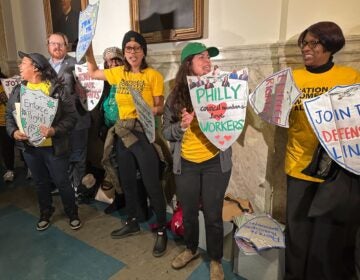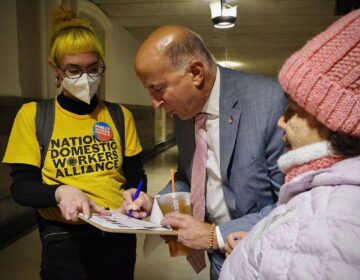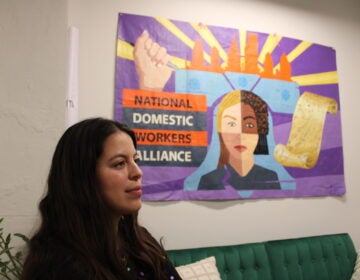Here’s how Philly’s Domestic Worker Bill of Rights would work
Philadelphia could be the biggest city in the U.S. with a Domestic Worker Bill of Rights. Here’s what it could do for an estimated 16,000 workers.
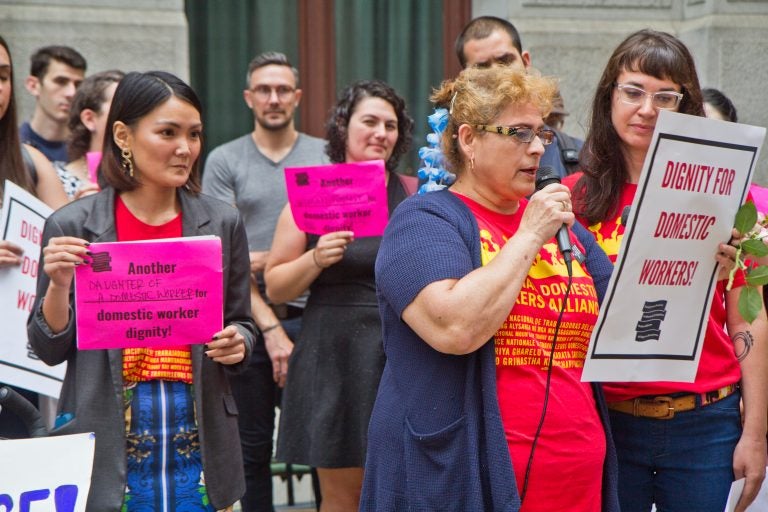
Activists, domestic workers, and government representatives gather outside City Hall Thursday morning before introducing the Domestic Workers' Bill of Rights legislation to city council. (Kimberly Paynter/WHYY)
Philadelphia is one step closer to becoming the biggest city in the U.S. with a Domestic Worker Bill of Rights, the latest legislative effort aimed at helping low-income residents in the poorest big city in the country.
Following a 10-month grassroots campaign, the measure was introduced Thursday in City Council during the body’s final session before the summer recess.
If passed, supporters estimate about 16,000 nannies, caretakers, house cleaners, and other domestic workers — many of whom are immigrants — will have legal protection from workplace abuse, including wage theft and retaliation.
“This sends the message that domestic workers are tired of working in the shadows with no labor protection, with legalized discrimination, with a lot of exploitation and abuse that comes when marginalized women are working behind closed doors,” said Nicole Kligerman, director of the Pennsylvania Domestic Workers Alliance, the group that pushed for the bill.
What’s in the bill?
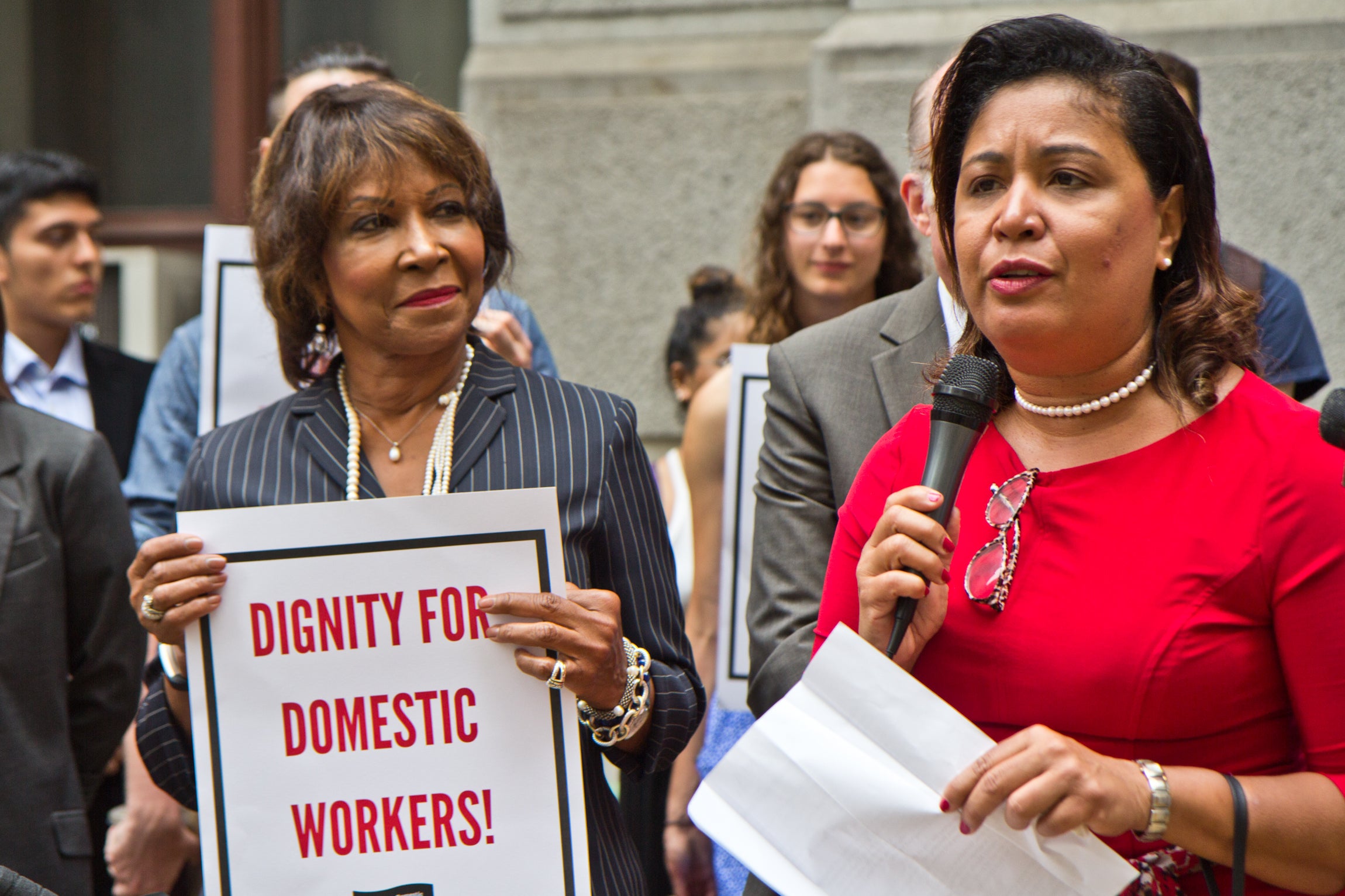
The bill, introduced by Councilwoman Maria Quinones-Sanchez, requires employers to have a written contract with workers, whether they’re an employee or independent contractor.
For example, parents who hire a nanny to care for their children must have a written agreement that spells out job duties, scheduling, hourly and overtime pay, and includes breaks for rest and meals — the tenants of the bill of rights.
Workers would be entitled to a paid 10-minute break every four hours, and a paid 30-minute meal break after every five hours. If they don’t get those breaks, their boss has to pay them for an extra hour of work.
Employees also must be given at least two-weeks notice if their boss wants to cut ties with them — one month for live-in employees. There are provisions for severance pay if that doesn’t happen.
North Philadelphia resident Maria del Carmen Diaz, one of the estimated 16,000 domestic workers in the city, called Thursday a “huge day.”
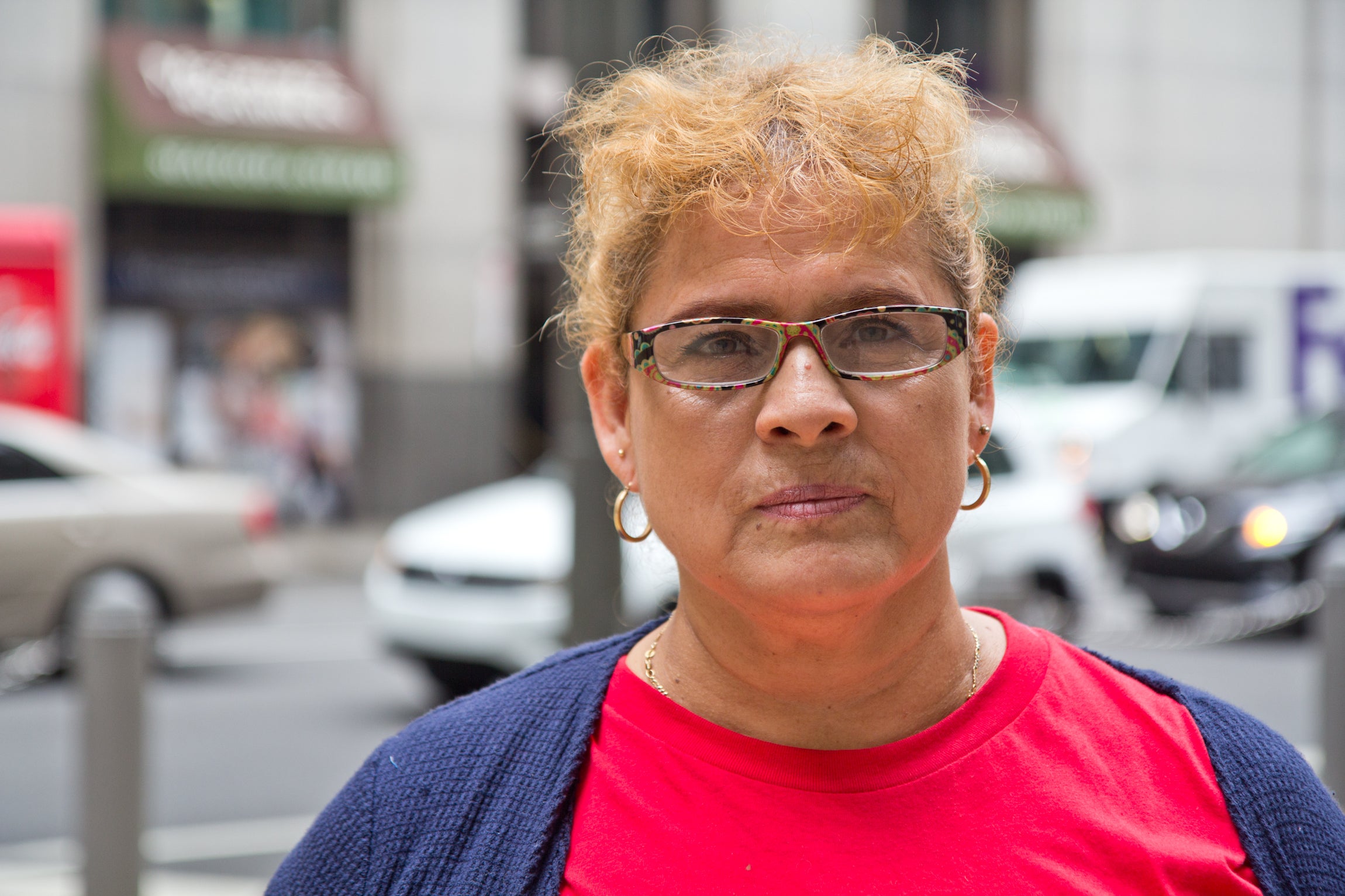
For more than two decades, she’s cleaned houses and cared for seniors and children. It hasn’t been easy, especially without legal protections, she said.
“I’ve done a lot of work and not been paid for it. I do extra work that I’m then not compensated for. There’s a lot of exploitation and abuse,” said Diaz through a translator during a rally outside City Hall.
Under the measure, employers are barred from retaliating against workers who lodge a complaint against them for violating a tenant of the bill of rights.
How will it be enforced?
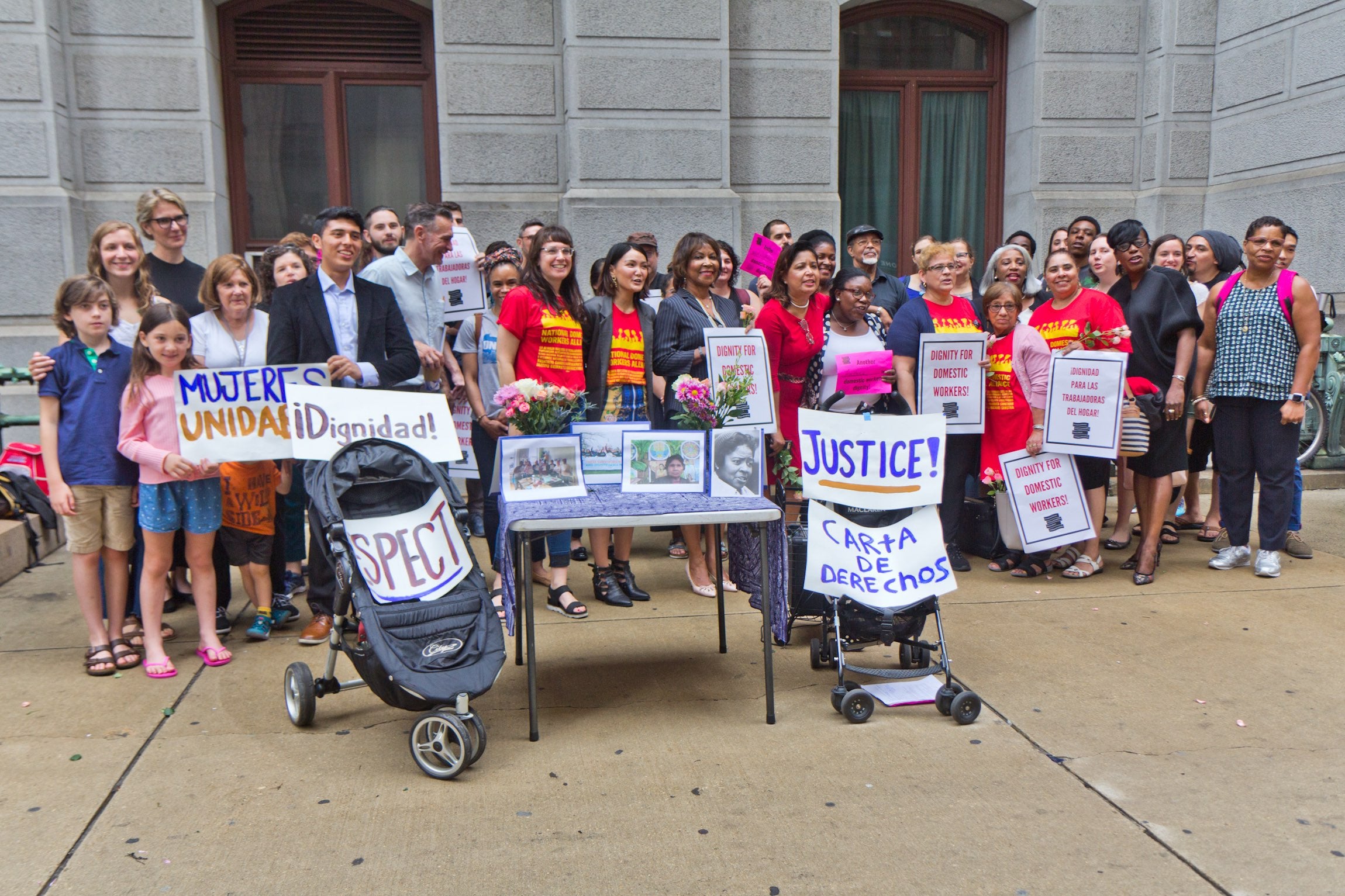
For now, it’s unclear how the law would be enforced, other than that those duties will fall to the Mayor’s Office of Labor.
In Seattle, the only big city that currently has a Domestic Worker Bill of Rights, enforcement is handled by the city’s Office of Labor Standards, an agency independent of the administration.
The Philadelphia measure calls for the creation of a Domestic Workers Standards and Implementation Board, which would oversee the enforcement and implementation of the law.
The Kenney administration, which backs the bill, would work alongside the board.
“Once it’s passed — hopefully passed — we will then work through the regulatory process to create the rules and then how we will implement,” said Richard Lazer, Philadelphia’s deputy mayor for labor.
In December, Mayor Jim Kenney signed “Fair Workweek” legislation, which forces certain companies, mostly corporations, to give fast-food, retail, and hotel workers more predictable schedules.
Two months later, Philadelphia became the first big city in the country to ban “cashless businesses,” brick-and-mortar shops and restaurants where customers can’t pay with cash.
The measure seeks to stop businesses from discriminating against the roughly 200,000 Philadelphians who don’t have a bank account, a group collectively referred to as the “unbanked.”
“We’ve never been shy about recognizing our challenge with our poverty rate in the city of Philadelphia, and the fact that people should be able to work 40 hours and take care of their family,” said Quinonez-Sanchez during Thursday’s rally.
Philadelphia is the poorest big city out of the country’s 10 largest. Roughly a quarter of residents — nearly 400,000 people — live below the poverty line.
WHYY is your source for fact-based, in-depth journalism and information. As a nonprofit organization, we rely on financial support from readers like you. Please give today.



